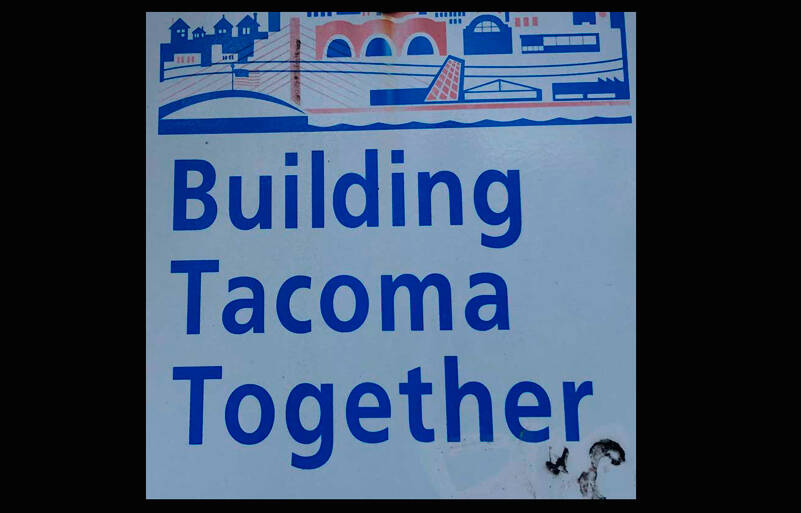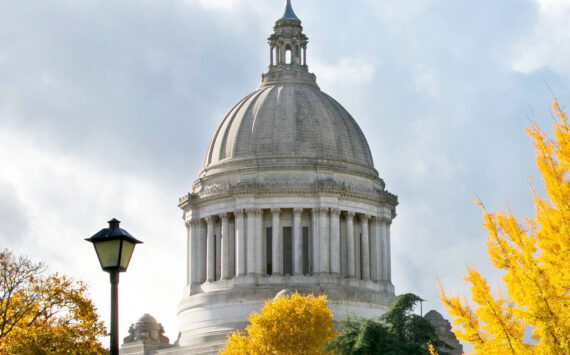By Morf Morford
Tacoma Daily Index
Not long ago I heard a local homeless activist described by a critic as being “anti-homeless”. It was not intended as a compliment.
The word “anti-homeless” strikes me as being similar to the word “anti-racist” in the sense that I can’t comprehend or even imagine anyone advocating their opposites.
There are clear and strident voices in opposition to “anti-racism” programs, but few, if any are in direct support or advocacy of unbridled “racism”. The same is presumably true of being “anti-homeless”.
As individuals and as advocacy groups, we have widely differing views and assumptions about the causes and solutions to homelessness. But I have yet to run into anyone who is an advocate FOR homelessness.
One of the most persistent urban legends is the belief that some, even many, on the streets or the muddy margins of our cities and towns actually want to be there. I’m guessing that none of these arm-chair social service experts have actually talked to – or even better, listened to, a living, breathing homeless person.
I have. Many times.
Even those who refuse shelter or social services have little to no interest in staying where they are. At least for very long. And few, if any, had being homeless as one of their intended life goals. Quite opposite, in fact, in virtually every case. Being cold, wet and vulnerable loses its appeal very quickly.
A typical day – for most of us
Consider, for example, the routine, everyday motions of a typical semi-middle class person. Within our safely secured home, we wake up in our comfortable, familiar bed. We use slippers and maybe a robe, a nearby functional bathroom, find coffee, breakfast, maybe a favorite morning radio or TV program.
We make our choices for appropriate clothing, find everything (mostly) where it should be. We prepare for our day, lock our home, confident in the knowledge that everything within it would be intact and undisturbed until our return. We make our way to our secure and familiar form of transportation.
At work, we find virtually everything as we left it the day before. From paperwork to keyboards, everything is clean and ready for our use.
After work we make our way home and, even at home, everything is largely the way we left it.
In short, safety, security and predictability are the hallmarks of the everyday life for most of us.
None of that is true for homeless people
By most accounts about a fourth of homeless people work. And far more would if they had transportation or if they could find a way to secure what few possessions they have while away at a workplace.
And homeless people are vulnerable – on a scale and on a schedule few of us could imagine.
Without locks or security of any kind, homeless people find themselves at the mercy of every whim of rain or wind or assaults and intimidation by those more cruel or desperate than they are. Or the ever-shifting responses from law enforcement or the general public.
The bottom line is that no one wants them.
No park, school, library or neighborhood want the homeless anywhere around – or even within sight.
Being homeless is dangerous
Nationwide 58% of those who are unsheltered have a disability compared to 10% of the general population. More than 32% have chronic illness.
In Tacoma, about 140 individuals without shelter have died in the past year or so.
Those living on the streets often have co-occurring conditions, including multiple chronic and disabling health and behavioral health conditions, resulting in frequent and costly hospitalizations and emergency room visits.
Consistent safety, comfort and warmth inside and away from the brutal exposure of the streets can save tax dollars, personal embarrassment and civic reputations.
It wasn’t always this way
It’s easy to forget that homelessness on the scale we see it, is a relatively new phenomenon.
In 1981, the United Nations announced that 1987 would be the International Year of Shelter for the Homeless. They did not have Europe or Canada or the USA in mind. Their focus was on the millions of households in developing countries that had no housing. They were unhoused, homeless. They needed adequate housing.
The idea that a modern European or North American nation would have a widespread “homeless” problem was inconceivable. If not preposterous.
Home vs. Shelter
There were always poor of course. Housing, or at least basic shelter was always available, even if that housing was substandard.
Those few transient single men in cities were referred to at times as “homeless.”
But back then, the word “homeless” actually referred to the idea of not having a “home” – not basic shelter.
A “homeless” person was someone with few or no ties to a family, who was without the economic or social support network a family home provides.
The individuals back then were homeless, not unhoused. They had housing. It might be poor-even terrible quality housing — rooming houses or accommodation provided by charities.
They had shelter. But they had no “home”.
The irony of “homelessness” as we know it today is that virtually none of those who find themselves without shelter started out that way.
For the most part, every homeless person we see had a long history of (relatively) stable shelter before they hit the streets.
Technically they are not “homeless”; they are “de-housed”. They had housing once, but somehow lost it.
And the vast majority will find their way back to semi-permanent shelter.
The word “homeless” emerged alongside the economic term “trickle down economics.” The premise was that, with tax breaks for the wealthy, the resulting wealth would “trickle down” to even the poorest.
That didn’t happen of course. The number of millionaires and billionaires grew exponentially – as did the numbers of homeless. The idea (and reality) of a social safety net disintegrated.
Many years ago, long before the word “homeless” was coined, every “modern” nation (particularly in Europe and North America) took it upon themselves to take care of its citizens.
A failure to provide people’s basic needs — the requirements for survival – was the ultimate dereliction of duty at its most basic of any and every civilized nation.
“Homelessness” on a large scale, then, was seen as a failure of governance and policy – not, as we frame it today, as the inevitable result of “bad choices” or personal decisions.
Those tents and ragged shelters, especially this time of year, say far more about us than they do about those inside them.






